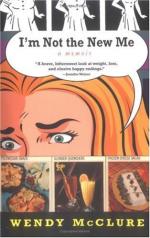[Footnote 5: Interview with Judge William Ewing of Chicago.]
[Illustration: THE CARTER SCHOOLHOUSE PRECINCT, INDIANA, WHERE LINCOLN RENEWED ACQUAINTANCE WITH OLD NEIGHBORS IN 1844.]
Lincoln’s speeches at this time were not confined to his own State. He made several in Indiana, being invited thither by prominent Whig politicians who had heard him speak in Illinois. The first and most important of his meetings in Indiana was at Bruceville. The Democrats, learning of the proposed Whig gathering, arranged one, for the same evening, with Lieutenant William W. Carr of Vincennes as speaker. As might have been expected from the excited state of politics at the moment, the proximity of the two mass-meetings aroused party loyalty to a fighting pitch. “Each party was determined to break up the other’s speaking,” writes Miss O’Flynn, in a description of the Bruceville meeting prepared for this Magazine from interviews with those who took part in it. “The night was made hideous with the rattle of tin pans and bells and the blare of cow-horns. In spite of all the din and uproar of the younger element, a few grown-up male radicals and partisan women sang and cheered loudly for their favorites, who kept on with their flow of political information. Lieutenant Carr stood in his carriage, and addressed the crowd around him, while a local politician acted as grand marshal of the night, and urged the yelling Democratic legion to surge to the schoolhouse, where Abraham Lincoln was speaking, and run the Whigs from their headquarters. Old men now living, who were big boys then, cannot remember any of the burning eloquence of either speaker. As they now laughingly express it: ’We were far more interested in the noise and fussing than the success of the speakers, and we ran backward and forward from one camp to the other.’
Fortunately, the remaining speeches in Indiana were made under more dignified conditions. One was delivered at Rockport; another “from the door of a harness shop” near Gentryville, Lincoln’s old home in Indiana; and a third at the “Old Carter School” in the same neighborhood. At the delivery of the last many of Lincoln’s old neighbors were present, and they still tell of the cordial way in which he greeted them and of the interest he showed in every familiar spot.




